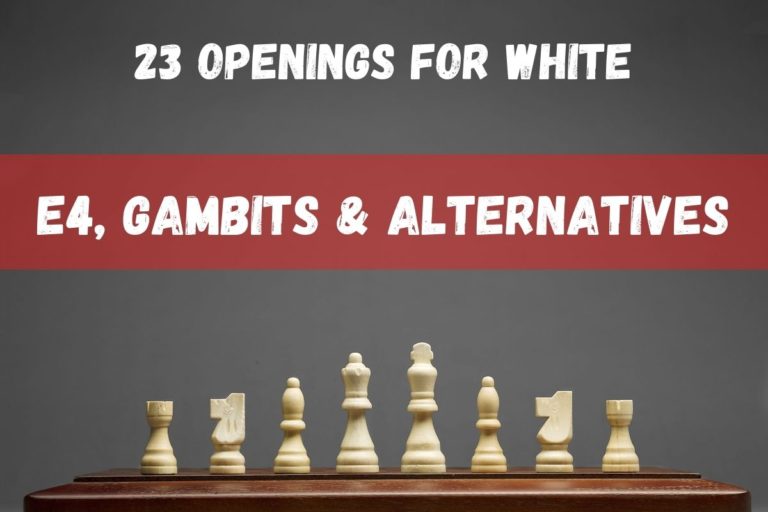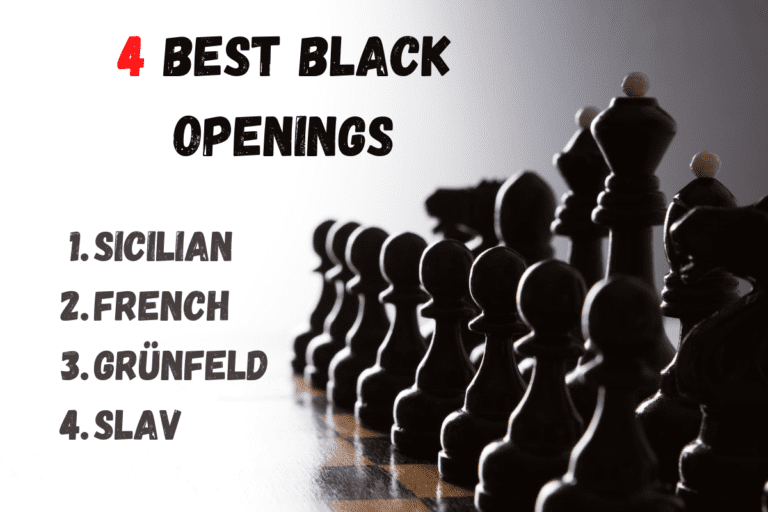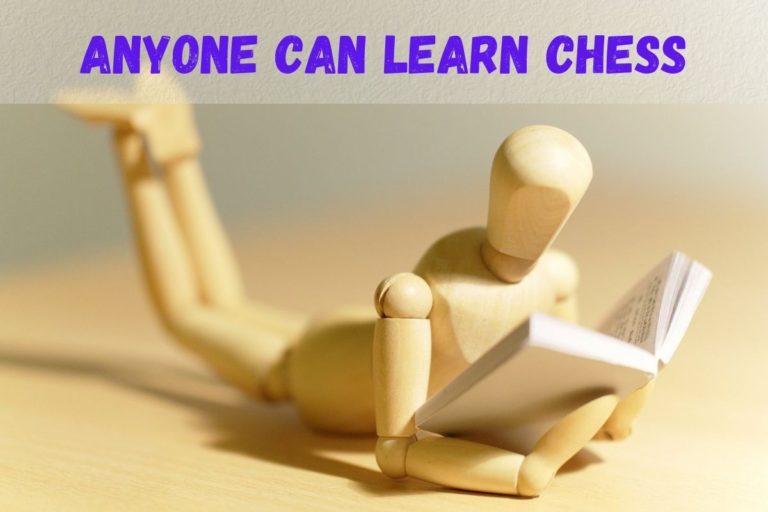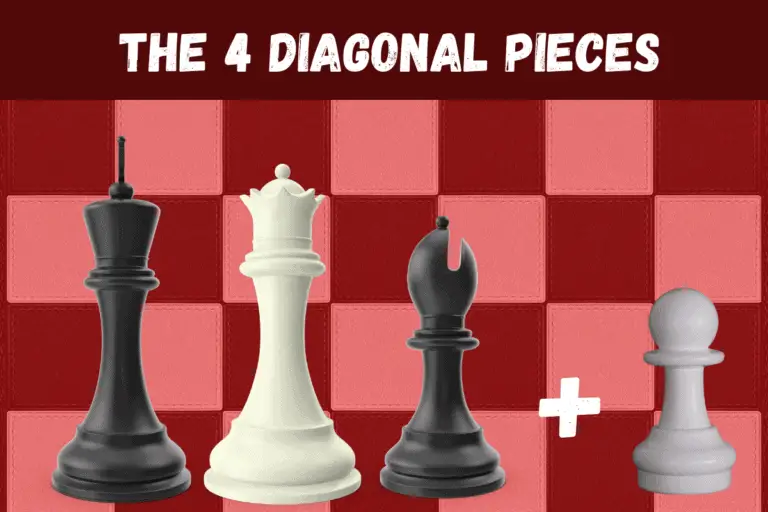When Chess Coaches are Worth It (Benefits, Cost & Time)
⭐⭐⭐ Take 10 minutes to read and improve your chess game ➡️ : This article was first published on, and is Copyright of Chessquestions.com
Chess is a complex game, and it can be hard to know where to start. You could try joining a chess club or playing online, but even then you might not get the advice you need. It’s also difficult to find time for regular practice and you may be considering a chess coach.That’s why I’ve created this guide to answer the question of whether chess coaches are worth it.
If you’re serious about improving skills on the board, a chess coach is worth it. Providing game analysis, training method plans, online support & feedback on your progress, a good coach will develop and deliver chess lessons that are worth both the time and financial investment they require.
A great coach will analyze your play style and give you personalized feedback on how you can improve your ability in both competition and training environments. A chess coach will help you develop new skills that make the most of your unique strengths as well as helping identify areas where improvement is needed, working together towards achieving your goals!
Chess coaches are an investment. An investment that some people might not know they need to make if they want to be the best at chess. But what is a good coach worth? How much does it cost, and how can you find the right one for your needs? What are the benefits of coaching? In this blog post, we will answer all of these questions so that you can understand whether or not hiring a chess teacher would be worth it for your game!
There are multiple benefits of using a chess coach
I am sure you understand that improvement can be achieved by using a professional teacher to instruct you on improving your game of chess, but what are the benefits of a chess coach?
- Understanding chess concepts
- Building opening repertoires
- Personalized feedback to improve
- A support system to keep you motivated
- You´ll change midset and think like a Grandmaster
Help you Understand Important Chess Concepts
Chess is a vast game and there are so many chess skills one must know to become a master. A chess teacher helps you understand chess tactics, strategy, plans, typical middlegame patterns, and endgame patterns etc. As you learn more, your skill develops. A good chess coach teaches you how to conduct post-mortem analysis on your previous games.
Build Opening Repertoires
The importance of chess openings is very significant, especially with the computers becoming better and better every day. A good coach can suggest openings to play depending on your style and strength. This way, you will be playing positions where you will have the maximum chance of gaining an advantage.
Personalized feedback
This one is perhaps the biggest benefit of having a professional chess coach. To become better at chess, you need to keep adding new knowledge and delete your mistakes. Oftentimes, a lot of chess players get stuck despite learning new things in chess.
They purchase opening and middlegame courses, but still cannot make a lot of progress. It happens because they are building their knowledge, without subtracting their mistakes and undertaking lots of analysis. Their game follows a certain pattern where they repeat the mistakes. A chess coach can make them aware of it.
They can also suggest what to do to prevent such errors. A player may be biased towards their game which might stop them from looking deeper. A coach isn’t. They’re always interested in your growth. This makes them the perfect candidates to give you personalized concrete analysis and constructive feedback.
Be your Support System
Anyone who’s more experienced than you, will understand your journey and the struggles you encounter in them. You won’t be winning tournament games always.
There will be moments, where you will be disappointed with your performance despite giving your best. An experienced coach knows this because they have been through it. They could offer you their support and give you valuable guidance on what to do in such cases.
They are one of your biggest supporters. Lean on them when chess seems harsh.
Adopting the coach’s mindset
In most cases, the coach will be stronger than the player (until you are a world champion or an elite player). By spending more real time with a stronger player, you will naturally begin to adopt their beliefs. Not only in chess but also in their psychological one.
For example, if you lack fighting spirit, but your coach is a warrior who refuses to give up, you will automatically begin to adopt this belief. In the most underlying sense, this is the power of good company.
Keeps you accountable and responsible
A good coach keeps you accountable. Whenever they give homework, you are more likely to complete it. If you don’t do the work, a coach will make you aware of it. Nobody wants to disappoint their coach or hear them point out your mistakes time and time again. This way you also become more responsible. Eventually, all of this reflects in your game.
A Professional Chess Coach Does More Than Teach Chess.
A coach is your part-mentor, part-trainer, well-wisher and supporter. Here’s a list of what an effective chess coach does to improve your game –
- Analyze your games & performance
- Creates personal training plans
- Increases your self-belief and confidence
- Provides instructional examples to practice
- Sets challenging positions to solve
- Prepares you for competition and tournaments
Analyze Games
A coach analyzes your games to pinpoint their strengths and weaknesses. While going through games, a good coach dissects the opening, middlegame, and endgame play. They highlight what you did well and give their feedback on what can be improved.
Create a personalized training plan
Depending on the areas you need to work on, your goal, and your time for lessons, a coach can create a chess improvement program that’s personalized for you. This way, you will be gaining insight and spending lots of time on effective chess topics that will actually make a difference to your game.
When you work on your own, you might not put in the work where it’s actually required. In other words, you will be more productive with the time you devote to chess.
Inject a shot of higher belief
Self-belief in chess is extremely important to become a better player. Sometimes, it has a bigger impact than your skill level.
When a responsible chess coach believes in you, you feel more motivated to do your best. Sometimes, their words are enough to spark a fire within you. Great coaches also work on the mental part of the game.
Show instructive games
Instructive games help you develop your chess understanding. Old chess classics are highly instructive. Don’t be surprised if your chess teacher shows you chess games of world champions of the past or recommends a couple of chess books.
These methods assist in learning new patterns and ideas.
Gives you tough positions to solve
You can only grow when the problems you face are tougher than the chess strength required to solve them. A good chess coach knows this and will give you hard positions for solving.
Actively engaging the student is essential for your chess improvement journey. They also show you the way you should think to arrive at the best move.
Tournament planning and non-chess-related advice
- Do you know which tournaments you should play to get better at chess?
- Do you know what type of major tournaments you shouldn’t play?
- How should you prepare for norm-tournaments?
An experienced coach often has valuable insights to share on this topic, assisting you in making better decisions. Also, you´ll gain advice on which software to buy for chess, what websites to learn from (apart from chessquestions.com of course), and prepare the ideal tournament preparation for you.
Online vs Offline Coaching – Which is best?
Offline coaching is more effective than online coaching. There is a reason why chess camps are organized before a team participates in a big event(like the Olympiad). In the camp, a coach and the chess players come together under one roof, to devote periods of time to chess study without any distractions. Similarly, in private 1-1 offline chess lessons, both the parties can fully focus on studying chess. This way, the learning process becomes effective.
On the other hand, in online chess lessons, there are numerous distractions for both parties. Poor internet connection often disturbs the flow of the session, which could cause both the student and the coach to lose their train of thought. This way, one has to communicate the same thing again. A student is less likely to be mentally engaged in such a chess lesson, which is so important for growth.
In the end, the physical presence of a coach makes a difference.
The Best Chess Coaches are Found in the Chess Community
Where do we even begin looking for a chess coach? Where are they found?
This one can be tricky and we urge you to read this section carefully. Chess coaching has become more of a business industry in recent years. Talented coaches are being left behind and those with powerful marketing are the ones dominating the niche.
Here, we will share a few important places where you can find the right coach along with running a background check on them.
But first, you need to know 2 things –
1. Where good coaches hang out
Professional coaches hang out where professional chess players play. So sites like chess.com or lichess are the places where you can find them. Apart from that, some of them would be active on social media or have their own academies. You could also ask your chess friends or connections to recommend you a coach.
2. Know your improvement goals
Are you looking for a chess coach to learn the basics of chess? It makes no sense to go for advanced coaches if you merely want to learn the basics.
If you are looking for someone who will help you on the professional journey, an advanced chess teacher will be the best. Having a rough idea of what chess skills you want to develop is beneficial. Also if you have a minimum rating you would like to achieve in mind (As long as it is realistic), this can help.
This will also help you keep a budget for coaching sessions.
Places to Find Good Coaches
Chess.com, lichess – Because professional players hang out on these sites in the chess community, one can find high-quality coaches (up to 2700 elo!) on these sites.
- Chess.com accepts elo rated players and titled players as coaches.
- Lichess accepts only titled players(like GMs, IMs, WGMs, WIMs, etc) as coaches.
So on lichess, you will have a narrow range, while on chess.com, you will have a broader range. Both these sites run background checks(whether the coach is legit) before approving the coach account. However, do run a background check of your own once you get in touch with them.
Search on Google, Insta, Facebook, Youtube – Let us set this straight. The coaches who will show up here, are the ones who can dance with the algorithm. They have good SEO. That’s not to say the coaches that appear here are incompetent. There are few talented coaches who are also good with SEO. But the vast majority is more competent with the algorithm than with chess.
Also, it’s difficult to find most of the top coaches through this platform.
Word of mouth referrals – Word of mouth is the best way to find top coaches. Ask for coach recommendations from strong players or from someone who’s doing well. This is the method most of the top coaches in the world are being approached. After all, these coaches are busier in watching their students grow than anything else.
Run a background check
There are some incompetent coaches no matter how you find them, so this step is an important.
Check their FIDE elo – The FIDE elo is a standard rating measure of their strength. Someone can be a good coach, only if they are good players themselves. You check their elo on the FIDE profile by asking them their name and FIDE ID. Most coaches will give it to you.
Check their Trainer title – The instructor title certifies that a person has undergone chess training from some of the world’s top coaches. As per our sources, one who doesn’t have any experience in coaching services cannot apply for this title. So you can trust people with it, to be good coaches.
However, this doesn’t necessarily mean that those without it aren’t competent. There are a lot of competent coaches who don’t have this title.
The titles given to these people include – FIDE Instructor, FIDE Trainer, FIDE Senior Trainer etc. You can find them on their profile.
Chess Coaches Cost
The rate a chess coach charges depends on their level and experience. The more advanced level you want to attain, the higher the cost of skills coaching.
The cost of a chess coach could range from ………………
- Experienced coach + Skilled Player = Highest rates
- Inexperienced as coach + Skilled Player = Normal – High rates
- Experienced as coach + Unskilled player = Normal rates – High rates
- Inexperienced + Unskilled player = Low rates
Usually, it’s easier to develop chess skills as a coach(communication, patience) than it is to develop as a player. Therefore, category 2 – “inexperienced coach + skilled players” often go from high to higher/highest rates in very little time. As they master the art of efficient teaching methods, they can present their chess knowledge in a better fashion.
We will give you a rough estimate of the average cost of hiring a coach.
| Coach Level | Cost p/h Lowest | Cost p/h Highest |
|---|---|---|
| Top Elite | $70 | $400 |
| Grandmaster | $40 | $200 |
| Master | $10 | $100 |
| Expert | $5 | $80 |
| Intermediate | $5 | $30 |
Also, the rates for online and offline coaching differ. For offline chess lessons, the charges are higher as transportation costs and additional time investment comes into the picture.
Now you might wonder that expert players on the higher end of the range charge higher than grandmasters on the lower range. How could this be possible?
Here’s where geography comes into the picture.
You can leverage the power of location to your advantage. For instance, chess teachers in countries with high standards of living charge more than those in poorer countries. This is where the difference comes from. So, an average grandmaster in India often charges less than an expert-level player from the west.
Use it wisely to your advantage.
With this, we hope you have a better understanding of whether or not chess coaches are worth it.

![50 Most Common Questions About Chess [Chess FAQs]](https://chessquestions.com/wp-content/uploads/2022/02/Questions-about-chess-768x512.jpeg)




